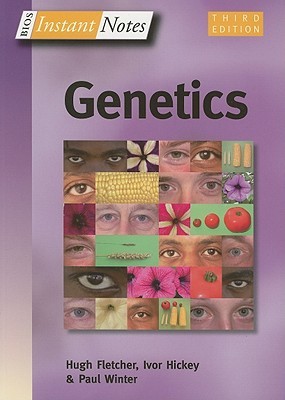

 |

|

The average rating for Genetics based on 2 reviews is 3.5 stars.
Review # 1 was written on 2011-08-08 00:00:00 Gary Tremaine Gary TremaineThe book is divided into two sections. The first is the biography of Gregor Mendel (1822-1884). Mendel spent thirty-five years conducting experiments primarily on peas. Mendel was a monk who in the last part of his life was the Abbott of the monastery where he spent his life. He is considered the father of the science of genetics. Henig reveals the strengths and weakness of Mendel in an interesting fashion. The second part of the book focuses on the rediscovery of Mendel. The primary figure is William Bateson (1861-1926). Bateson was a professor of biology in England and was the first person to use the word genetics. In 1902 he read Mendel’s paper and realized its importance for Darwinism. Henig tells of Bateson’s work to bring Mendel’s work to prominence. Henig reviews Bateson’s research work and his use of women scientists as research assistants. The author goes into detail about the disagreement between Bateson and Thomas Hunt Morgan(1866-1945) who developed the chromosome theory which Bateson opposed. The book is well written and researched. The story is easy to read with lots of details about the main scientist. I did notice a few historical errors, for example, Henig said Galileo refused to renounce his heliocentric belief before the Inquisition when, in fact, he did. The author states she traveled to the Monastery in Czech Republic that Mendel lived it and examined his garden and papers. Henig noted that most of Mendel’s papers were burned after his death. The author states her interest in genetics is personal because her father died of Huntington’s disease. Fleet Cooper does a good job narrating the book. |
Review # 2 was written on 2013-11-20 00:00:00 Logan Laux Logan LauxHenig's factual errors in background material makes me doubt the historic accuracy of the book. She covers Mendel's life but dwells on his failures as much as his achievements. In the later period after his death and in the scientific debate she focuses on the historic revisionism far more than the science of the period unless it was to show the disagreeable nature of ill funded animal work in crowded settings. Henig develops the idea that Mendel was so test phobic he failed to get his teaching certificate, twice. That he became so corpulent he couldn't walk up hills or stairs. She uses so many petty descriptions in reference to his size it feels like an agenda on her part. Yet photos available in other books show him to be fairly typical in build. She constantly harps on his lack of genius or his genius was only in orderly counting. This is more than damming with faint praise it is dedicated denigration of Mendel. She uses the sensational to make the book lively when she mentions Mendel's later adherents & detractors became so abusive it was rumored Weldon's heart failure was murder. She wrote " . . . Galileo Galileo, an Italian mathematics professor and devout Catholic, faced excommunication for defending those same ideas (i.e., Copernicanism). Official doctrine had changed by then . . . but Galileo . . . refused to renounce his radical ideas . . . Galileo was not 'devout' with his mistress and his 3 illegitimate children. The Popes argument was with Galileo's insistence that the Church change -its- interpretation of Scripture to conform to Galileo's reinterpretations, which he had based on Copernicanism. The issue was Galileo's Scriptural re-interpretation, not his astronomy. Galileo did renounce his radical doctrinal ideas. He was forced to keep to his villa outside Florence and not travel after wards. The threat of excommunication and torture are common exaggerations Henig should never have used. She goes on to say "But natural scientists, if they are intellectually honest, often find themselves taking heretical positions on matters of creation and procreation, positions that challenge the very underpinnings of the Catholic Church." That is blatantly false as science does not deal in matters of faith or doctrine only in that which has testable evidence. It is also false in terms of Mendel who was a monk who studied the natural world as was common in that era. This world view typical then would have been of great interest to explore and explain especially in view of the current fundamental versus scientific conflict. Henig has an sociopolitical bias I do not agree with. |
CAN'T FIND WHAT YOU'RE LOOKING FOR? CLICK HERE!!!